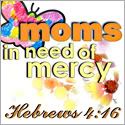Work with what works.
One of my children hates doing workbook pages. Absolutely can't stand them. It's a struggle every day to get him to sit down and do the front and back of his math page (and to a lesser extent, his phonics). The seatwork is preceded by grumbling about how he doesn't like the workbook, and I give him a pep talk to do it anyway with a good spirit. Sure, he needs to learn to do things he doesn't like, and pushing through develops discipline. But, especially at such an early point in his learning, I don't want him to despise math and language arts simply because the workbook pages kill his love for learning.
So let's find a new way.
The workbook pages aren't essential. It's the information contained on the pages that I want him to learn. After doing some reading, I realized there are plenty of other ways to cover the information, and those ways are much more interesting (and fun) for him.
For example, although we've been having lots of rain lately (and snow today!), on a really nice day, the boys were outside writing with sidewalk chalk. I took the math book out and sat down and quizzed my son on his math problems while he was drawing with chalk. He did his number exercises with sidewalk chalk and enjoyed it. He told me with a smile that it made him happy to do math this way. That's what we want. A love for learning.
A few days ago, we covered the money problems not with the workbook, but with real coins at the kitchen table. All of the boys took part and learned something at their various levels. We practiced counting by fives not by the pictures in the book, but with real nickles. My two year old is even learning what is a penny, what is a nickel, and what is a dime.
While one of my boys loves workbook pages, and I literally have to cut him off because he says "No, Mom, I want to do another page," I realize that my other son's particular learning style is better geared to hands-on activities. So we'll work with that as much as possible, rather than force him to struggle through a different system that he doesn't do as well with.
Some of the books that have helped me gain confidence in this regard:
- The Three R's (an excellent book that offers plenty of non-textbook, real-life, hands-on ideas--and encouragement--for teaching math, reading and writing in the early grades)
- Christian Home Educators' Curriculum Manual : Elementary Grades (Christian Home Educators' Curriculum Manual (Elementary Grades))
- Real Learning: Education in the Heart of the Home
(While we come from different Christian traditions--Elizabeth Foss is Catholic, and I am not--I appreciate all her practical homeschooling encouragement and wisdom on building a home of faith).
- For the Children's Sake: Foundations of Education for Home and School





















No comments:
Post a Comment